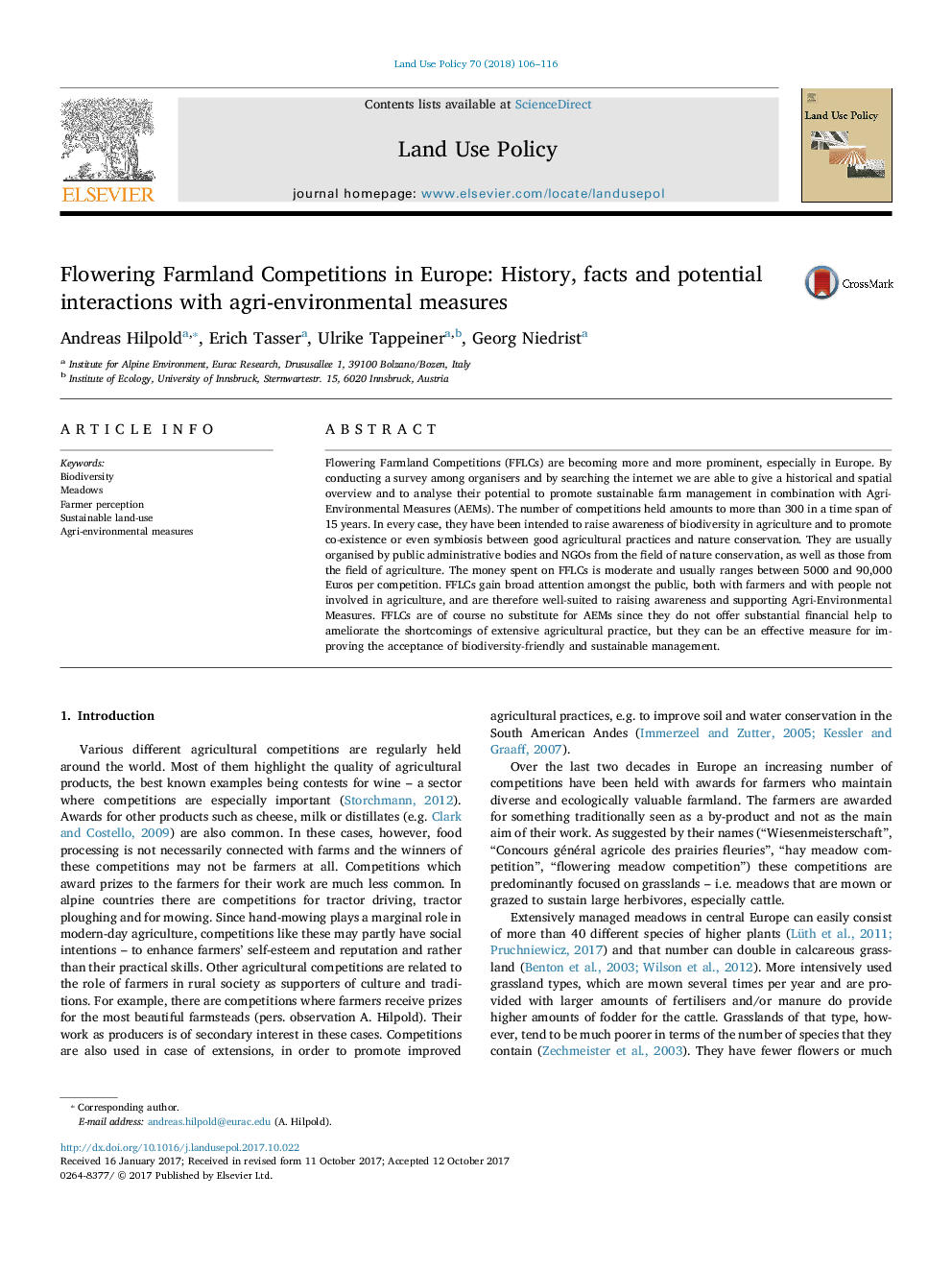ترجمه فارسی عنوان مقاله
مسابقه های زراعتی در اروپا: تاریخ، حقایق و تعاملات بالقوه با اقدامات زیست محیطی
عنوان انگلیسی
Flowering Farmland Competitions in Europe: History, facts and potential interactions with agri-environmental measures
| کد مقاله | سال انتشار | تعداد صفحات مقاله انگلیسی |
|---|---|---|
| 91672 | 2018 | 11 صفحه PDF |
منبع

Publisher : Elsevier - Science Direct (الزویر - ساینس دایرکت)
Journal : Land Use Policy, Volume 70, January 2018, Pages 106-116
ترجمه کلمات کلیدی
تنوع زیستی، مراتع، ادراک کشاورز، استفاده پایدار از زمین، اقدامات زیست محیطی،
کلمات کلیدی انگلیسی
Biodiversity; Meadows; Farmer perception; Sustainable land-use; Agri-environmental measures;

